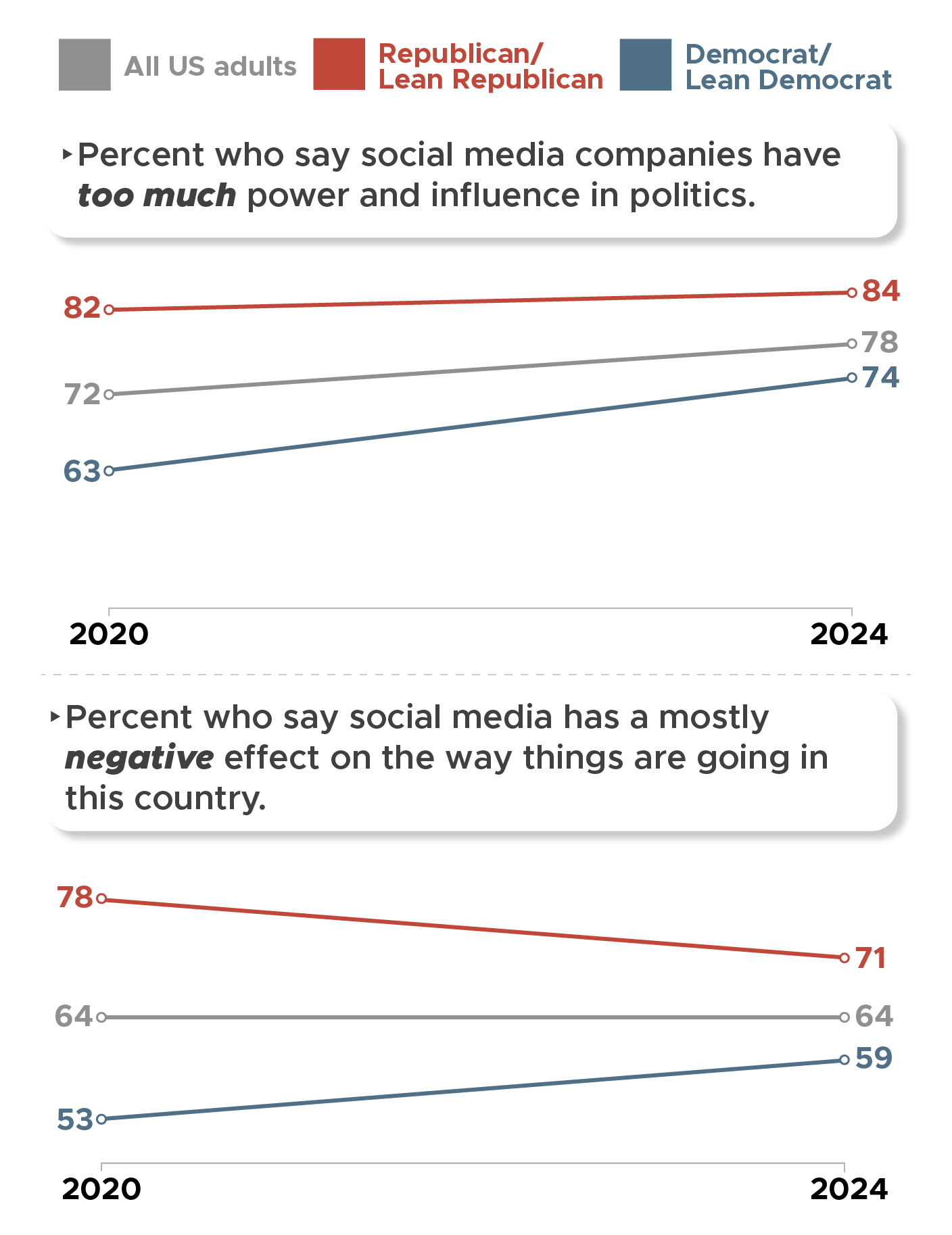The New “Pro-Israel” Assault on Free Speech
Plus: Why Ukraine aid won’t do the job, how AI could save your life, how AI could kill us all, unmasking UCLA vigilantes, enigmatic graphs of the week, and much more!
“Congress shall make no law… abridging the freedom of speech.”
—some ancient document
I personally haven’t been using the word “genocide” to describe what’s going on in Gaza. I’ve always used that term narrowly—conservatively, you might say—even as, in recent decades, it has come to be used more and more broadly.
Still, given that broadened use—which we’ve seen not just in op-eds and social media posts, but in international law circles—it seems hard to get indignant about people who are using the term to describe what Israel is doing in Gaza. If commentators can call China’s treatment of the Uighurs genocide without being expelled from the realm of acceptable discourse, shouldn’t college students be able to call Israel’s treatment of the Gazans genocide without being expelled from the realm of acceptable discourse?
You’d think. But a bill passed this week by the House of Representatives, if it becomes law, could lead to the expulsion of such students not just from the realm of acceptable discourse but from the colleges they attend. Of all the recent attempts to stifle criticism of Israel in the guise of fighting antisemitism, this bill may be the most pernicious.
The Antisemitism Awareness Act—passed by a vote of 320 to 91—grounds its authority in Title VI of the Civil Rights Act. Under Title VI, colleges that tolerate discrimination on their campuses can be punished by the Department of Education via termination of federal funding. Which gives colleges a strong incentive to crack down on any workers or students who practice discrimination.
So what exactly qualifies as discrimination under Title VI? And, in particular, what would qualify as discrimination against Jews? There’s no explanation of that in Title VI itself (which wasn’t originally construed to include Jews as a protected group, since it focuses on racial and national groups and explicitly excludes religious groups). That’s where the Antisemitism Awareness Act comes in. It says that in determining whether Jews face discrimination (which under Title VI includes harassment) the Department of Education should refer to a controversial and sweeping definition of antisemitism—the definition adopted by the International Holocaust Remembrance Alliance.
And, importantly, the bill explicitly emphasizes the importance of “the ‘contemporary examples of antisemitism’ identified in the IHRA definition.” There are nine such examples. One of them is: “Drawing comparisons of contemporary Israeli policy to that of the Nazis.” Accusing Israel of genocide would obviously qualify as antisemitism by this criterion.
So if the bill became law, the Department of Education—Biden’s Department of Education or, in nine months, maybe Trump’s—would have the legislated authority to cut funding to colleges that failed to silence students accusing Israel of genocide. And, since the US, as Israel’s chief weapons supplier, is complicit in Israel’s mass killing of Gazans, a president would face a strong intrinsic temptation to use that authority, not to mention the assuredly strong political pressure to use it. Tens of thousands of students could face disciplinary action for criticizing a foreign government and, by implication, their own government.
Note that the strength of the claim about genocide would be irrelevant. If Israel declared that it wanted to kill all Palestinians and then proceeded to do so, students could still be disciplined for using the G word. So too with the other G word: If students accused Israeli soldiers of employing Gestapo tactics in the West Bank, it wouldn’t matter how much evidence they might adduce. (Such as this video, from last month, of Israeli soldiers keeping watch while an Israeli settler torches the car of a Palestinian—part of the settlers’ ongoing ethnic cleansing campaign in the West Bank.)
This bill closely echoes an executive order issued by President Trump in 2019, and some might say it therefore wouldn’t change anything. But it would. Future presidents can revoke executive orders, but not laws. And a president who wanted to crack down on campus criticism of Israel would be less likely to get overruled by the courts if he could cite a law rather than just an executive order he’d issued.
A number of civil liberties and free speech groups—including the ACLU—have noted how various other parts of the IHRA antisemitism definition are problematic from a first amendment perspective. The more of their assessments you read, the clearer it becomes that the Antisemitism Awareness Act is an atrocity.
So how did it come to be? Like Trump’s executive order, it is largely a product of lobbying by “pro-Israel” groups. (I’ll explain the sarcastic quotation marks below.) As the Jerusalem Post reported in February, more than a dozen pro-Israel groups—including AIPAC, the Anti-Defamation League, and the Conference of Presidents of Major American Jewish Organizations—have been urging Congress to adopt the IHRA definition.
This particular pro-Israel threat to free speech in America isn’t the first. More than two thirds of America’s states have passed laws that target the BDS movement, which aims to pressure Israel via boycotts, divestments, and sanctions. Thus, a Palestinian-American speech pathologist lost her job at a public school in Texas because she refused to pledge in writing not to boycott Israel—even though boycotts have been deemed a form of protected speech by the US Supreme Court. As Julia Bacha’s documentary “Boycott” shows, these state laws were based on templates created by pro-Israel groups and got critical political support from such groups (including not just Jewish groups, but the influential evangelical group Christians United for Israel).
OK, as for those quotation marks around “pro-Israel”:
I don’t think these anti-free-speech initiatives are ultimately good for Israel. (I also don’t think they’re good, by and large, for American Jews—but that’s a subject for another day. For now I’d just emphasize that what’s good for Israel and what’s good for Jews are separate questions, and that conflating Israel and “the Jews” is a common feature of antisemitism. In fact, conflating the two is example number nine of antisemitism in the IHRA definition—which makes it kind of ironic that example number eight, the one I’ve focused on, implicitly conflates the two.)
Many Israelis and pro-Israel Americans have been taken aback in recent months by the amount of criticism of Israel emanating from Americans—and not just from college protesters; the number of mainstream commentators and other elites who have been publicly and sharply critical of Israeli policy is unprecedented.
That partly reflects the Israeli policy in question—the devastatingly brutal war in Gaza. But I think it also reflects something else: pent-up, long-simmering frustration among some American elites over the extent to which honest criticism of Israel has been stifled by pro-Israel actors—ranging from AIPAC to the Anti-Defamation League to various commentators—who try to silence such criticism by stigmatizing the critics as antisemitic.
The frustration over this speech policing, I think, dovetails with frustration over other pro-Israel influence on US politics—in particular, the lobbying that for decades has warped America’s Middle East policy (leading, for example, to the abandonment of the Iran nuclear deal and to various policies that make the US more of a target for terrorists, including provision of the weapons that have killed Gazans en masse). Traditionally, many Americans who would like to speak out against some of these Middle East policies have been reluctant to—and some have been especially reluctant to point to the role that pro-Israel lobbying played in formulating them. After all, noting this kind of influence is said to be an antisemitic “trope.” Just ask Ilhan Omar.
It should go without saying that lots of Jews and Jewish groups don’t support the Antisemitism Awareness Act. The progressive pro-Israel group J-Street doesn’t, and neither do such progressive not-so-pro-Israel Jewish groups as If Not Now and Jewish Voice for Peace. The relative youthfulness of such groups, along with a lot of polling data, suggests that the dominance of AIPAC and other groups on the pro-Israel right is on the wane. The Antisemitism Awareness Act may be the last gasp, or at least one of the last gasps, of a coalition that has long been allowed to define what is and isn’t “pro-Israel.” In retrospect, I think, this coalition will be seen to have hastened its own demise by overreaching, especially on the speech policing front.
But this demise may come too late. Fourteen years ago, I wrote a piece for the New York Times called “Against ‘Pro-Israel’ ”—complete with the sarcastic quotation marks. I said that if groups like AIPAC and the ADL continued to define the establishment line on Israel, and to punish dissent from it, then Israel, insulated from criticism, would keep building settlements, and the chances of a two-state solution would get more and more remote.
I wrote: “The only long-run alternatives to a two-state solution are: a) a one-state solution in which an Arab majority spells the end of Israel’s Jewish identity; b) Israel’s remaining a Jewish state by denying the vote to Palestinians who live in the occupied territories, a condition that would be increasingly reminiscent of apartheid; c) the apocalypse.”
Looking at the Middle East today, I don’t see much evidence that I was wrong.
Who said Red America and Blue America can’t come together? Their levels of antipathy toward social media, at least, seem to be converging.
But why? Why have Democrats gotten more critical of social media as Republicans have gotten less so? Why have Democrats gotten much more concerned about the power of social media companies as the level of Republican concern has stayed roughly constant?
Our data analysis team has come up with a hypothesis (an exercise that, thankfully, involved no actual analysis of data). Leave a comment explaining your own theory about what's going on, and later in the week we’ll respond with ours.

The Ukrainian foreign ministry’s new spokesperson isn’t a person—she’s an AI. The ministry released a video in which a highly human-looking being named Victoriya Shi introduces herself as “a digital person” who is modeled after Ukrainian influencer Rosalie Nombre. Shi will stay away from the ministry’s weightier issues and focus on providing updates about consular services for Ukrainians. This will free up time for some of the ministry’s real human beings to “focus on other tasks of providing assistance to citizens,” said one of the ministry’s seemingly real human beings.
As Russia makes small daily gains on the battlefield, expanding frontlines that have been stable since 2022, will America's new $61 billion Ukraine aid package give Kyiv “a chance at victory,” as President Zelensky has said? A number of western analysts worry that it will barely sustain Ukraine’s defensive crouch.
Eugene Rumer, director of the Russia and Eurasia Program at the Carnegie Endowment for International Peace, writes: “Ukraine has no good options, even with the latest aid package. Many military analysts have already come to that conclusion privately but are unwilling to voice that sentiment.” Rumer says the aid won’t be enough to offset Russia’s advantages in manpower and materiel. And he questions whether the US-led West has the stomach for a long-term commitment.







